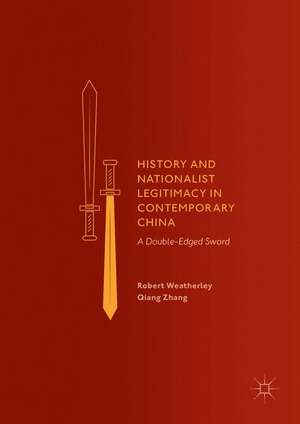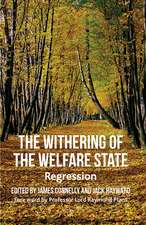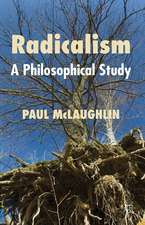History and Nationalist Legitimacy in Contemporary China: A Double-Edged Sword
Autor Robert Weatherley, Qiang Zhangen Limba Engleză Hardback – 11 sep 2017
Preț: 696.50 lei
Preț vechi: 819.41 lei
-15% Nou
Puncte Express: 1045
Preț estimativ în valută:
133.29€ • 138.65$ • 110.04£
133.29€ • 138.65$ • 110.04£
Carte tipărită la comandă
Livrare economică 14-28 aprilie
Preluare comenzi: 021 569.72.76
Specificații
ISBN-13: 9781137479464
ISBN-10: 1137479469
Pagini: 256
Ilustrații: IX, 205 p.
Dimensiuni: 148 x 210 mm
Greutate: 0.41 kg
Ediția:1st ed. 2017
Editura: Palgrave Macmillan UK
Colecția Palgrave Macmillan
Locul publicării:London, United Kingdom
ISBN-10: 1137479469
Pagini: 256
Ilustrații: IX, 205 p.
Dimensiuni: 148 x 210 mm
Greutate: 0.41 kg
Ediția:1st ed. 2017
Editura: Palgrave Macmillan UK
Colecția Palgrave Macmillan
Locul publicării:London, United Kingdom
Cuprins
Introduction.- 1. Turning to Nationalism - Another Crisis of Regime Legitimacy for the CCP.- 2. Aggressive Nationalism - Utilising the Yuanmingyuan Incident.- 3. Aggressive Nationalism - The Legacy of Japanese Imperialism in China.- 4. Consensual Nationalism - The KMT and the Second Sino-Japanese War.- 5. Consensual Nationalism - The Republican Era and the Rise of Republican Fever.- Conclusion.
Notă biografică
Robert Weatherley is Affiliated Lecturer in Chinese Politics at the Faculty of Asian and Middle Eastern Studies and the Department of Politics and International Studies, University of Cambridge, UK. He also works as a commercial lawyer for the UK law firm Mills & Reeve LLP.
Qiang Zhang is Researcher at the Department of Politics and International Relations, University of Oxford, UK. Prior to this, he was a BBC journalist for 11 years.
Textul de pe ultima copertă
This book examines how the Chinese Communist Party (CCP) has attempted to bolster its nationalist legitimacy through the utilisation of Chinese history. The authors identify two different modes of nationalism - aggressive and consensual - both of which are linked to the historical memory of the late Qing Dynasty and Republican era. Aggressive nationalism dwells on China’s traumatic “century of humiliation” and is intended to incite popular resentment towards former imperialist powers (particularly Japan and the US) whenever they are deemed to still be acting in a provocative manner in their dealings with China. The aim is to remind the Chinese people that the CCP liberated China from imperialism after 1949 and has since restored national pride. Consensual nationalism is more conciliatory, emphasising common historical ties with the Guomindang (KMT) during the Second Sino-Japanese War and the Republican era. Here, the CCP is trying to promote itself as the party of national harmony andunity, with the long-term objective being peaceful reunification with Taiwan. However, the public response in China has not always been supportive of the CCP’s claims to be the sole defender of Chinese national interests. Some critics have suggested that China would have been better off if the KMT had won the civil war instead of the CCP. Others have insisted that the party is hopelessly weak on issues of national importance and that China is no stronger now than it was during the final throes of the much-hated Qing Dynasty. This book will be of interest to research students and scholars of Chinese politics, history and international relations.
Caracteristici
Studies the interaction between the mandate of the CCP to rule China and its national education on contemporary Chinese history Provides an interdiscplinary approach which combines history with contemporary politics Argues that the nationalist propaganda used by the CCP does not necessarily strengthen their popularity








